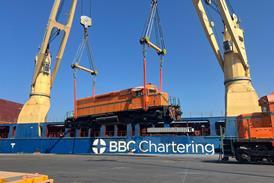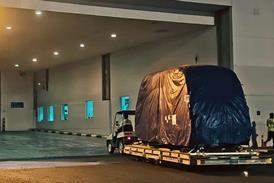Close menu
- Home
- News
- Insights
-
Digital editions
- Back to parent navigation item
- Digital editions
- 2026 digital editions
- 2025 digital editions
- 2024 digital editions
- 2023 digital editions
- 2022 digital editions
- 2021 digital editions
- 2020 digital editions
- 2019 digital editions
- 2018 digital editions
- 2017 digital editions
- 2016 digital editions
- 2015 digital editions
- 2014 digital editions
- 2013 digital editions
- 2012 digital editions
- 2011 digital editions
- 2010 digital editions
- 2009 digital editions
- 2008 digital editions
- 2007 digital editions
- Awards
- project cargo
- Advertise
A look at the UK’s freeport model
2021-03-12T11:49:00

The UK’s freeport model may not offer a ‘big bang’ of changes for Customs processes but, in the long-term, could improve ease of doing business and be used as a vehicle to support the energy transition and decarbonisation.
Already have an account? LOG IN
To continue…
Keep up to date on the latest information on over-dimensional and heavy cargoes.
Enjoy free unlimited access to HLPFI news, and receive our 2 weekly newsletters
Follow Heavy Lift & Project Forwarding International on social media
- Terms & Conditions
- Cookie Policy
- Privacy Policy
- Advertising Terms & Conditions
- Archive (by date)
- © Heavy Lift & Project Forwarding International
Site powered by Webvision Cloud










